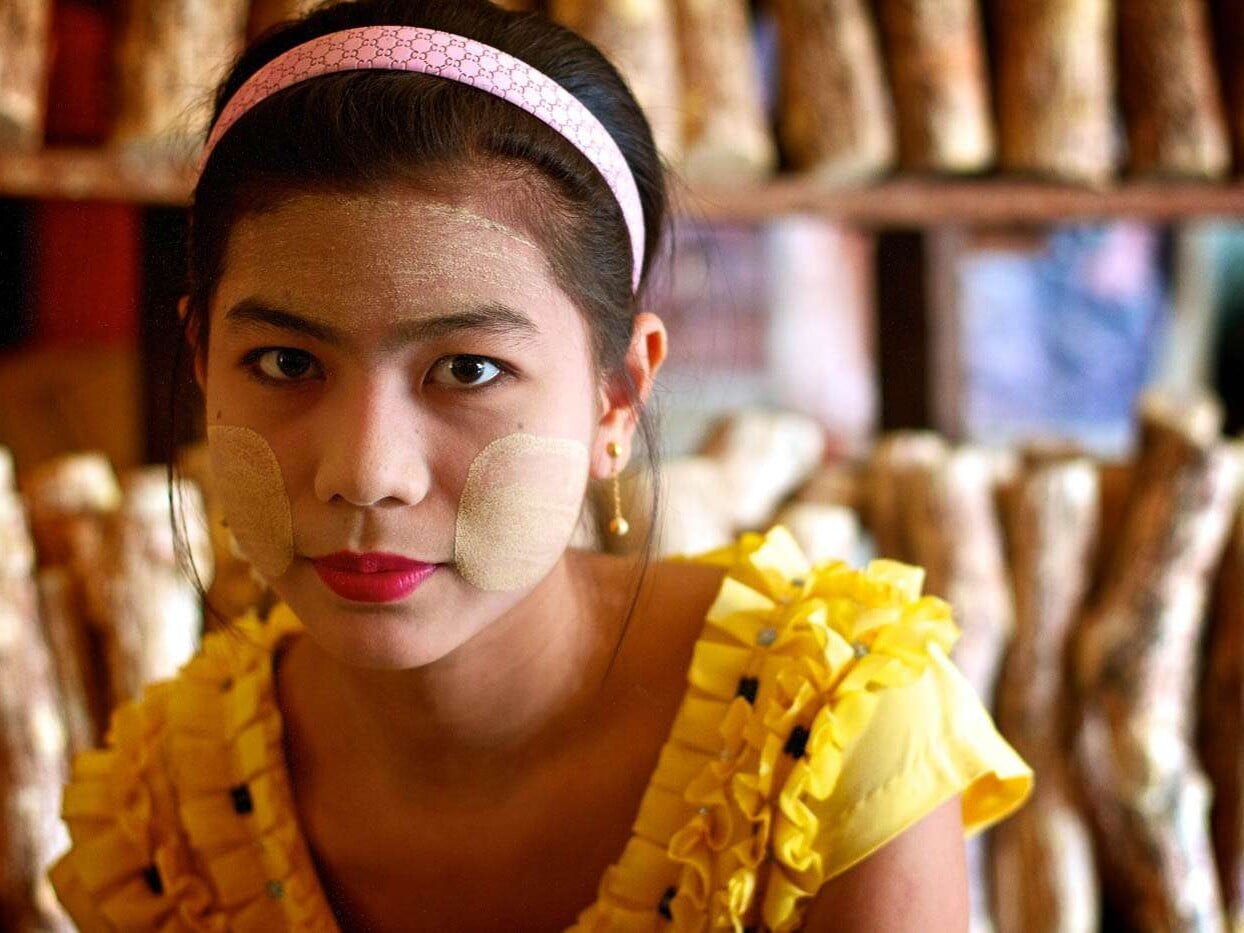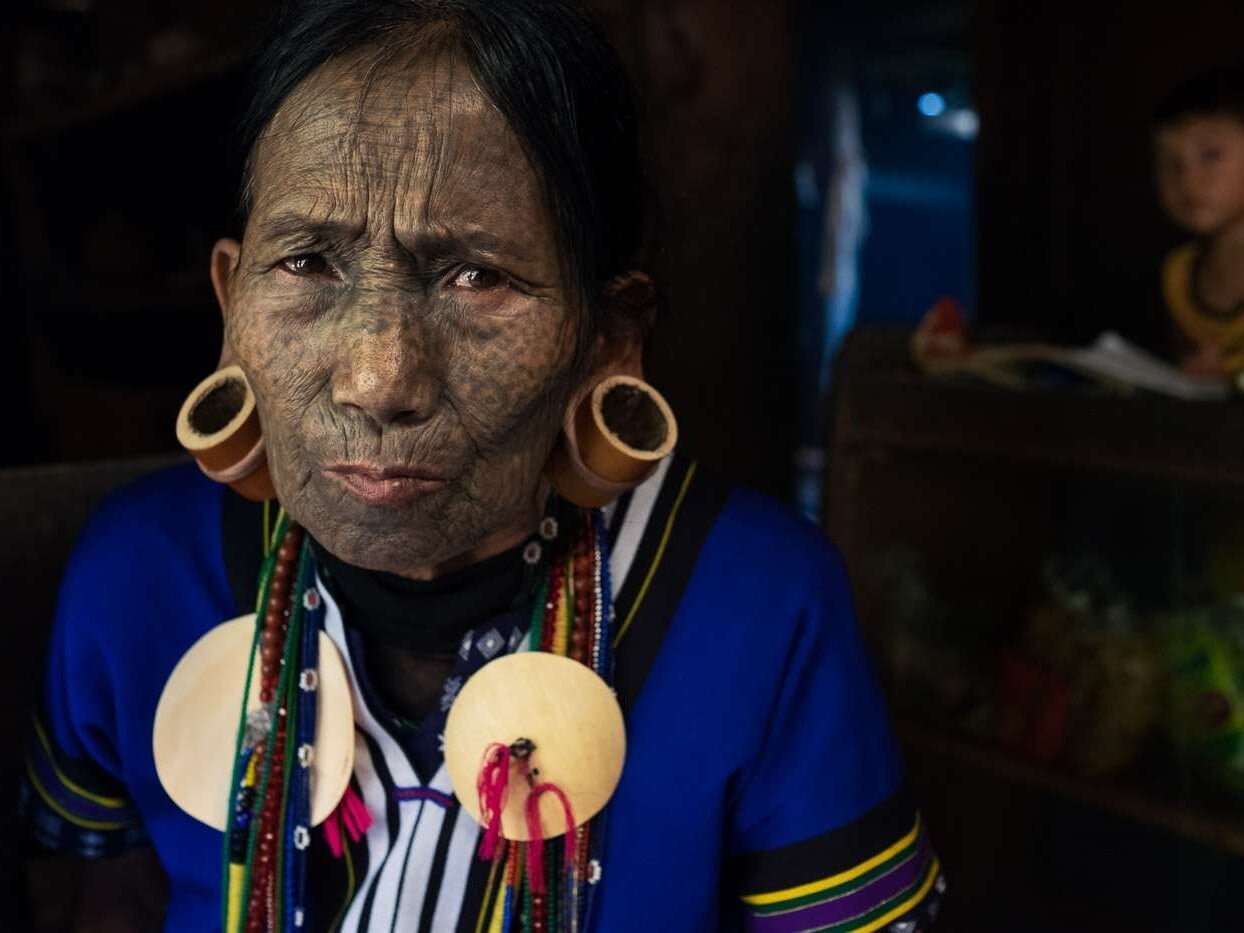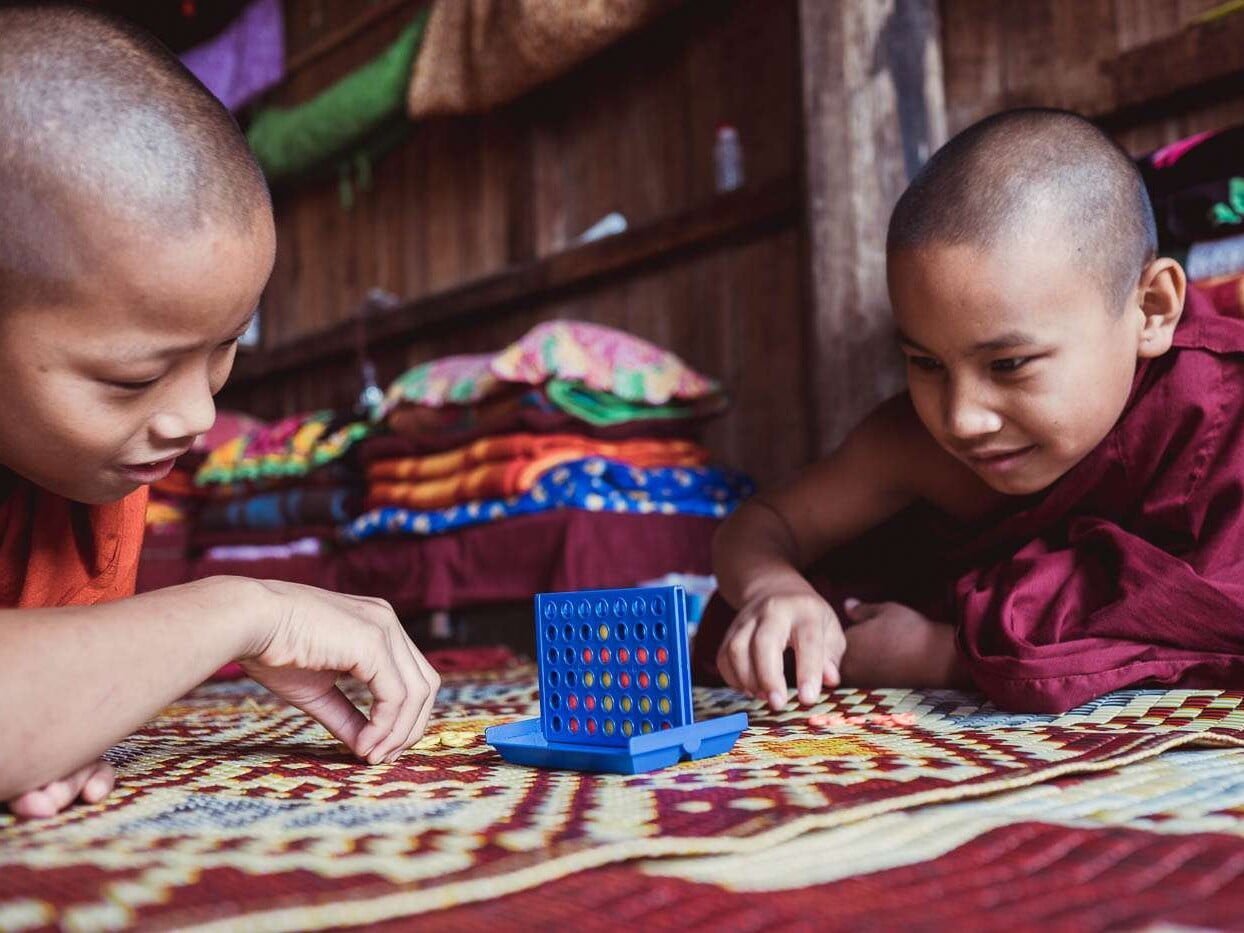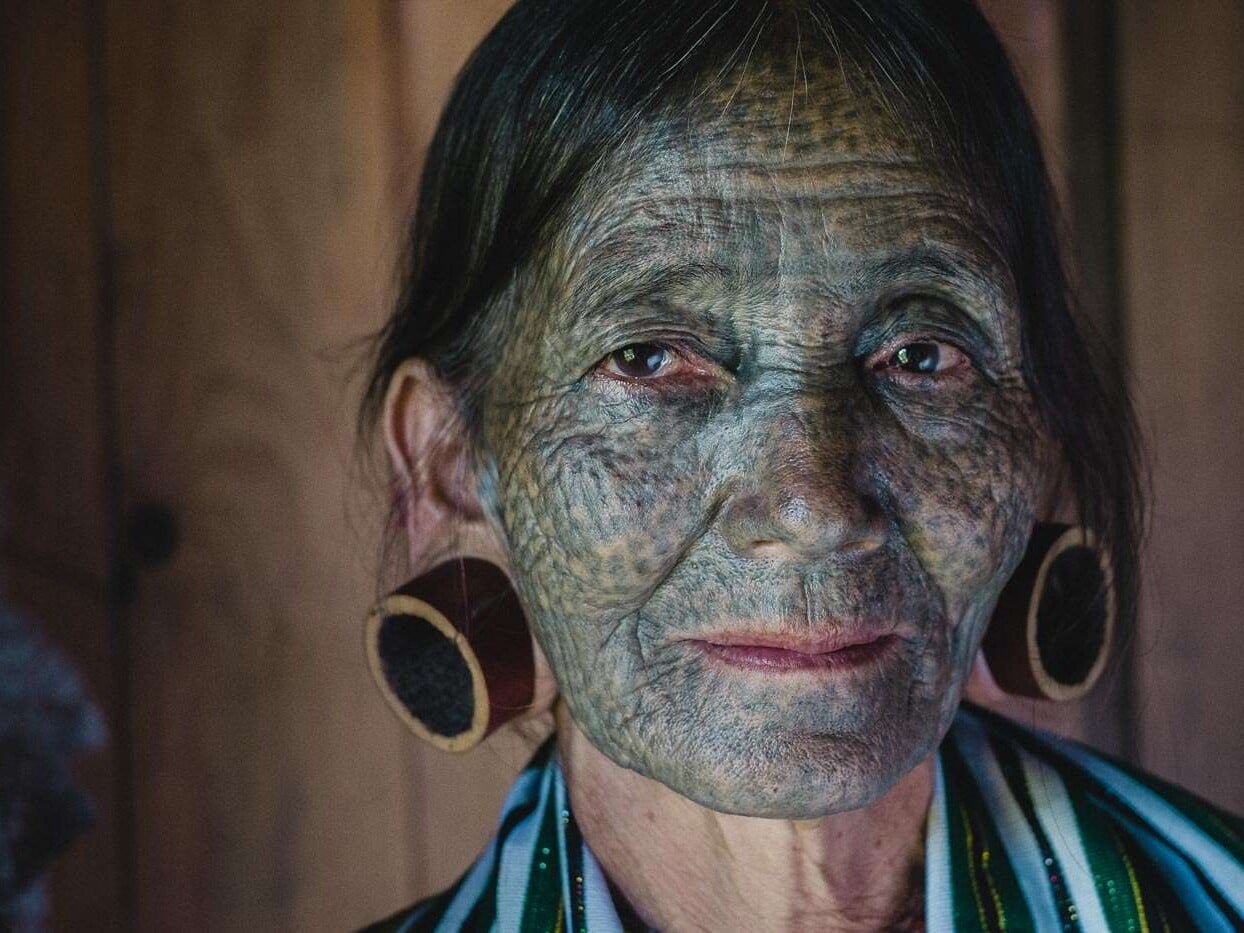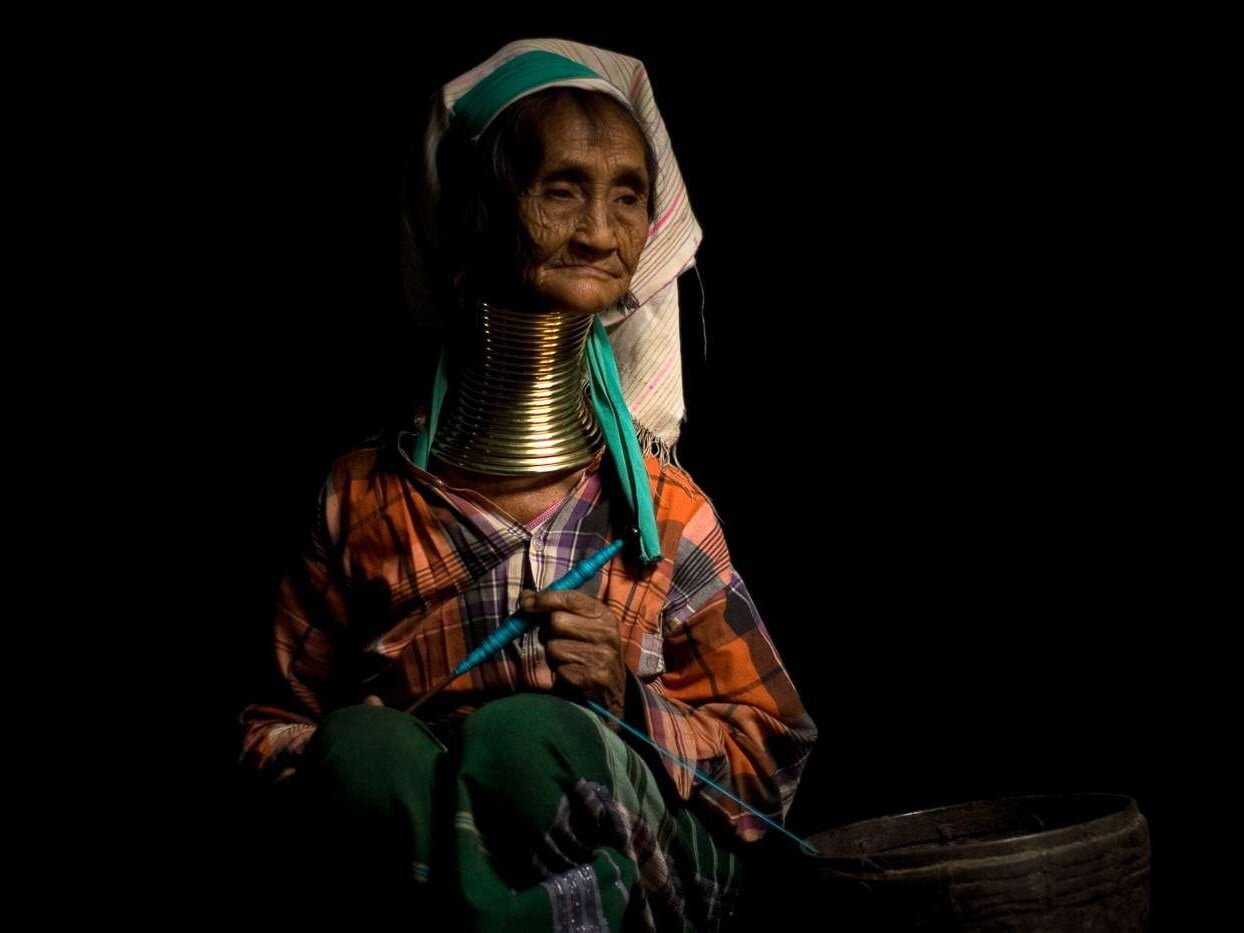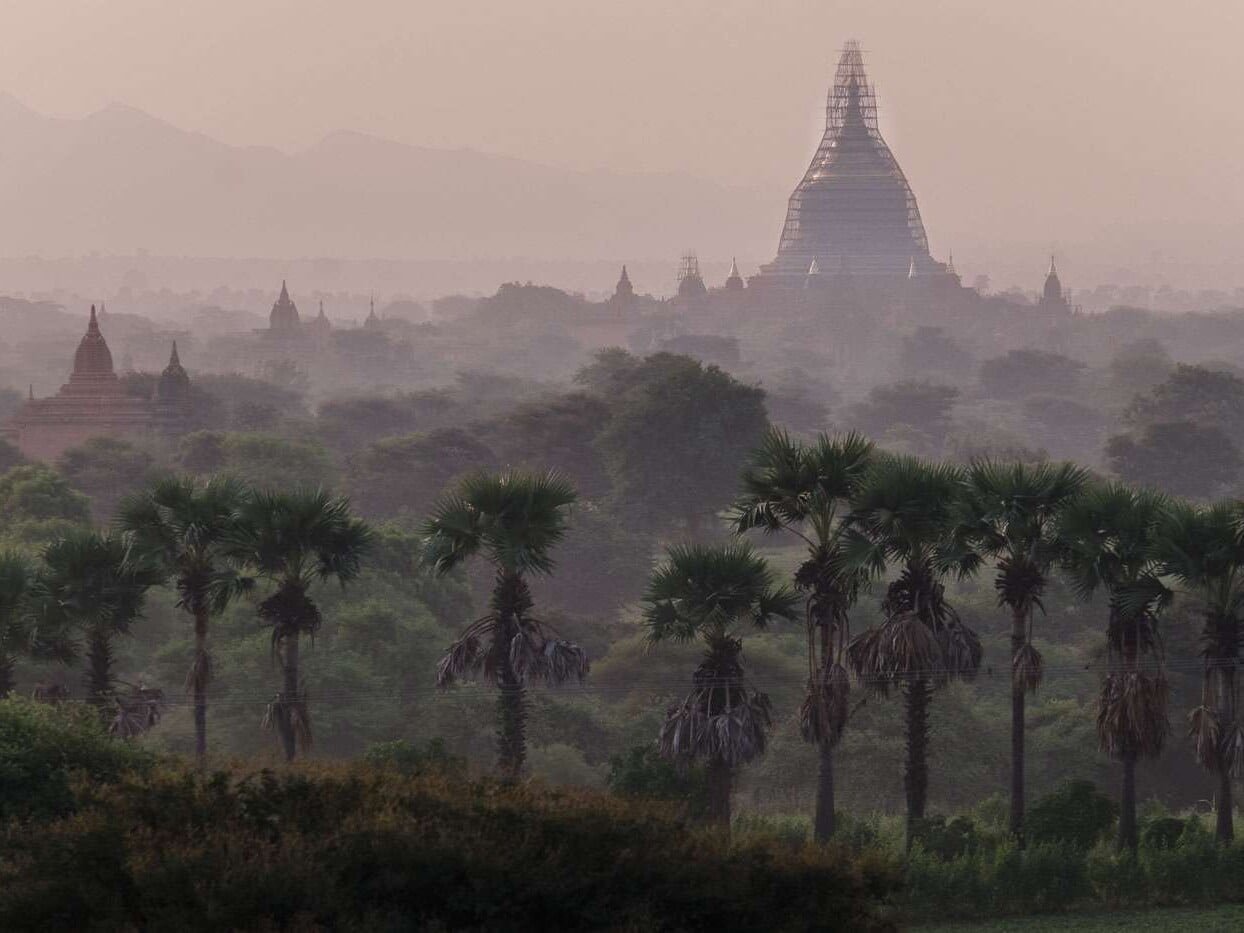The dying art of nose flute playing
20 March 2016
It’s no picnic getting to Mrs Shen’s little wooden home. Until a couple of years ago, her village in Burma’s Chin State was almost completely isolated, cut off from interactions with the rest of the country by thick forest and poor roads that dissolved into a sludge of glutinous mud at the first hint of a monsoon downpour.
On our private tour, we’d timed things to coincide with the best weather. Even so, during a bumpy journey of many hours, a raft ferry had to be summoned and bullocks called in to haul our car across the mud and water of a swollen river.
In her wooden house, we at last meet Mrs Shen. She is 88 years old and stooped and slow-paced. She declares herself to be not in the best of health. But there’s also a feisty sparkle in her eye when she talks of her nose-flute repertoire. Her lined and heavily tattooed face — customary adornment amongst her generation of the K’Cho tribe — breaks into a rueful smile as she speaks of weakened lungs and her declining ability to play the nose flute for long periods.
She had an old fire-blackened kettle bubbling on her stove as we settled down to hear her story. Laser-like shafts of sunlight burst through knotholes in her wooden walls and cut across the cool gloom of her home. And when we asked her to play a little for us, she excused herself, went behind a rough curtain to her sleeping quarters, and came out ceremonially costumed up.
And that is how we photographed her.
They’ll send money back home for solar panels, chargers and motorcycles. And the thin breathy whistle of Grandma’s nose flute will be forgotten.
As we made photographs and talked, we were aware that — like so many things we see and shoot on our photography travels — the person, the practice and the phenomenon we are witnessing will not be replaced when it passes. Many in her daughter’s generation refused to tattoo their face. And her grand-daughters are of the digital age: their attention is not on the villages of their forefathers, or on nose-flute performances, but on the bright lights and well-paid tourism and web jobs in Yangon and other important Myanmar cities. They will leave the valley and the forested ridges of their ancestral home. They’ll send money back home for solar panels, chargers and motorcycles. And the thin breathy whistle of Grandma’s nose flute will be forgotten.
Shoot this with us:
More Myanmar backstories and galleries…
Cheeky cosmetics: Myanmar‘s Thanaka
We take a cheeky look at the distinctively Burmese tradition of thanaka.
22nd March 2019
Face to face with the Chin
Myanmar's Chin tribes draw us in for some serious photographic goodies: tattooed tribeswomen with great ink, great stories and photogenic lifestyles.
15th March 2019
Faith, hope and photography
In Myanmar, we spend time with residents of an old people's home and leave with new insights — and photographs.
8th March 2019
All aboard the Yangon Circular!
With the Yangon Circular Railway modernising, will we lose the delicious decay of this piece of Myanmar's history?
27th February 2019
Myanmar – Monastery life Photo Gallery
A collection of images and opportunities from the monasteries and nunneries of Myanmar.
23rd June 2018
Myanmar – Streets and Markets Photo Gallery
A collection of images and opportunities from the streets and markets of Myanmar.
23rd May 2018
Myanmar – Tribal Photo Gallery
A collection of images and opportunities with the tribal groups of Myanmar.
23rd April 2018
Portraits of Myanmar
A Myanmar photography tour is not just about amazing places. It's also about the stunning faces.
27th June 2017
Myanmar – Scenics and Classics Photo Gallery
A collection of images from the iconic opportunities of Myanmar.
23rd February 2017
Burma – a changing landscape
Burma's opening-up brings massive change — and some of it means changing opportunities for photographers.
19th October 2016

